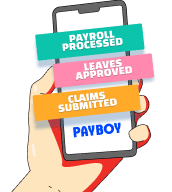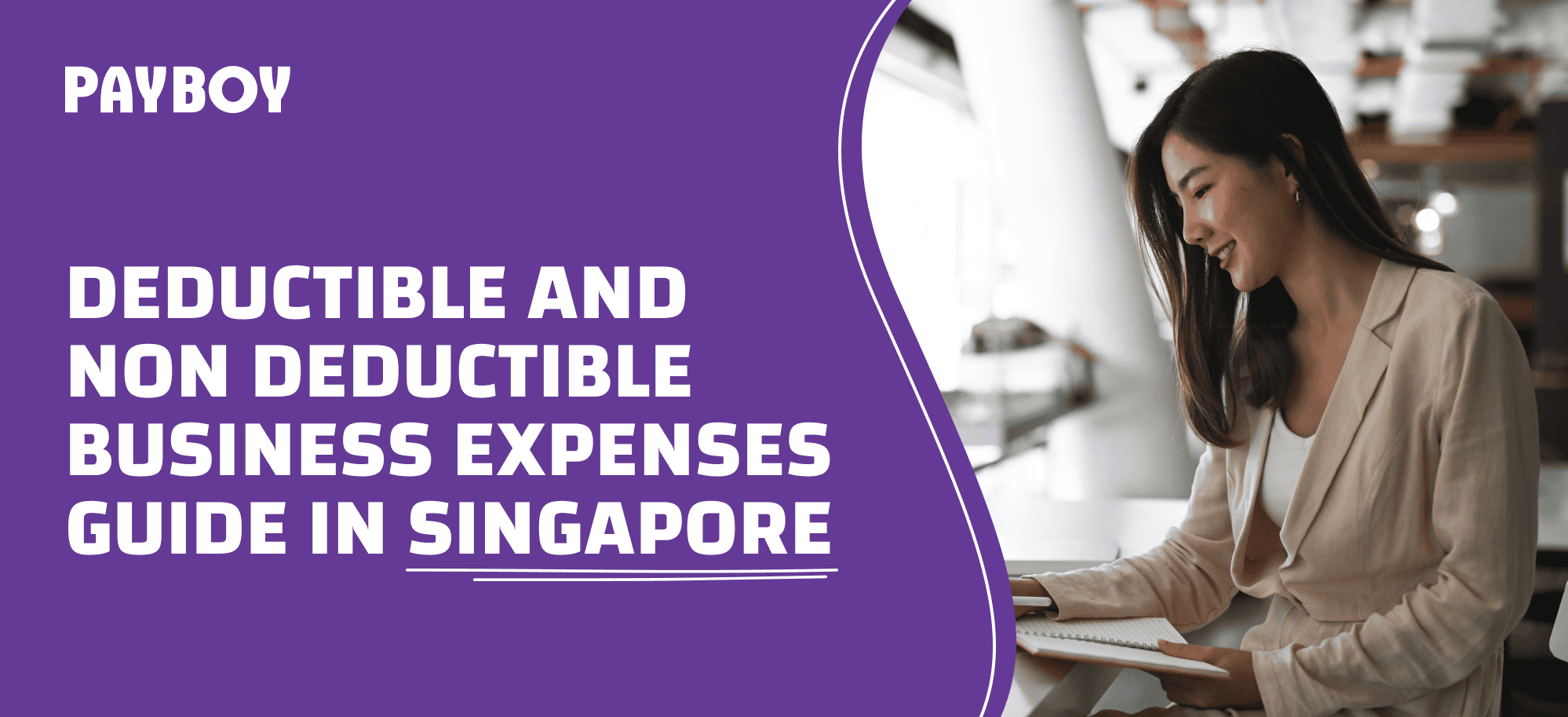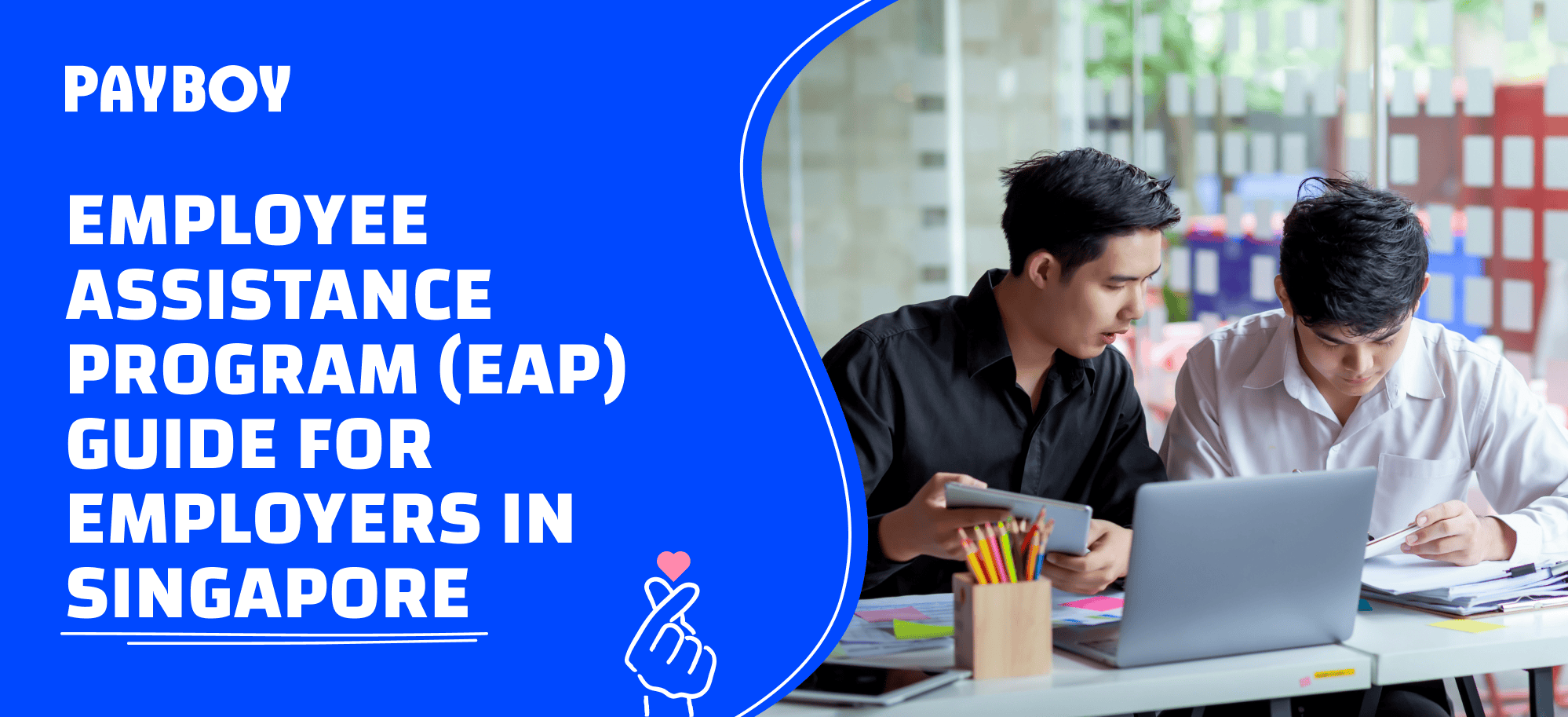Understanding which business expenses are deductible and which aren't is essential for keeping your company's finances in order and staying compliant with Singapore's tax regulations. Our comprehensive guide will take you through the various types of expenses, the general rules for deductibility, and the specific categories of both deductible and non-deductible expenses according to the Inland Revenue Authority of Singapore (IRAS).
What are deductible business expenses?
Generally, deductible business expenses are those "wholly and exclusively incurred in the production of income." This means the expenses must be necessary and directly related to business operations. They should not be capital in nature or personal expenses of the company's owners or employees. To qualify as deductible, these expenses must meet specific criteria set by IRAS.
What are the general rules for deductible business expenses?
To determine whether an expense is deductible, it must satisfy all the following conditions:
- The expenses are solely incurred in the production of income.
- The expenses are not a contingent liability, i.e., they do not depend on an event that may or may not occur in the future. In other words, the expenses must be incurred. An expense is 'incurred' when the legal liability to pay the expense arises, regardless of the date of actual payment of the money.
- The expenses are revenue, not capital, in nature.
- The expenses are not prohibited from deduction under the Income Tax Act of 1947.
What are non-deductible business expenses?
Non-deductible business expenses are costs that cannot be subtracted from a company's taxable income. These expenses typically fall into categories such as personal expenses, capital expenditures, and expenses prohibited by law.
What are some examples of deductible business expenses?
Here are some examples of deductible business expenses in Singapore, according to the Inland Revenue Authority of Singapore (IRAS):
- Employee remuneration: Salaries, wages, bonuses, training, and other payments (CPF, FWL, etc) to employees are deductible.
- Rent and utilities: Costs incurred for renting office premises and paying for utilities such as electricity and water.
- Office supplies: Expenditures on printing, stationery, office equipment, telephone bills, and other necessary supplies.
- Advertising and promotion: Expenses related to marketing activities, including advertising in various media and the cost of promotional materials.
- Professional Fees: Fees paid to professionals such as lawyers, accountants, auditors, directors, and consultants for services provided to the business.
- Repairs and maintenance: Costs associated with repairing and maintaining business premises and equipment.
- Insurance premiums: Payments for insurance policies that protect business assets and operations.
- Interest expenses: Interest paid on loans taken for business purposes.
- Bad debts: Amounts written off as irrecoverable debts.
- Research and Development: Expenditures on research and development activities aimed at enhancing the business.
These expenses must be incurred wholly and exclusively in the production of income to qualify for deduction.
For more detailed information, you can visit the IRAS website for the complete list of deductible business expenses.
What are examples of non-deductible business expenses?
Some examples of non-deductible business expenses according to the Inland Revenue Authority of Singapore (IRAS) include:
- Private expenses: Costs incurred for personal purposes, such as personal travel or entertainment.
- Bad debts (non-trade debtors)
- Amortisation
- Employee contributions: any contributions that exceed the statutory rate.
- Capital expenditures: Expenses on acquiring fixed assets like property, plant, and equipment. These are considered capital investments and are not deductible.
- Fines and penalties: Any fines or penalties imposed for violating the law are not deductible.
- Income tax: Corporate income tax and any other taxes on income are not deductible.
- Donations: Non-deductible donations are those not made to approved institutions of a public character.
- Preliminary expenses: Costs incurred before the commencement of business operations, such as incorporation fees and legal fees related to setting up the business, are generally not deductible.
- Private car expenses: Costs associated with private cars, including depreciation, maintenance, and fuel for private cars, are non-deductible.
- Interest on non-income producing loans: Interest paid on loans taken for non-income producing purposes is not deductible.
For further details, please refer to the IRAS website for non-deductible business examples.
6 tips to effectively manage your business expenses and ensure compliance
When navigating business expenses for companies in Singapore, as outlined by the IRAS, here are some tips to keep in mind:
Tip #1: Understand deductible and non-deductible expenses
Familiarise yourself with which expenses are deductible (e.g., employee remuneration, rental expenses) and which are not (e.g., personal expenses, capital expenditures). Properly categorise these will help ensure compliance and avoid errors.
Tip #2: Maintain proper documentation
Keep accurate records of all business expenses, including invoices, receipts, and other relevant documents. This is crucial for supporting your deduction claims and simplifying the audit process if needed.
Tip #3: Claim capital allowances
Instead of expensing the full cost of capital assets immediately, claim capital allowances to spread the cost over several years. This approach can progressively reduce your taxable income.
Tip #4: Consult a tax professional
Seek advice from a tax professional or accountant. They can offer tailored advice, ensure you comply with tax regulations, and help you maximise your legitimate deductions.
Tip #5: Utilise IRAS resources
Make use of the tools and resources provided by IRAS, such as interactive guides and e-learning videos. These can help you understand complex tax matters and stay updated on any changes in tax regulations.
Tip #6: Software and automation
Consider using HR software that integrates with tax regulations. This can streamline the process of recording and categorising expenses, making it easier to comply with tax laws.
By focusing on these key areas, you can effectively manage your business expenses and optimise your tax position in compliance with IRAS guidelines.
Simplify your business expense management with Payboy HR software!
Managing business expenses manually using spreadsheets can be a cumbersome and time-consuming task. To save time and money on managing your business expenses, implementing expense management software like Payboy’s Claims Management module can be incredibly beneficial. Here are some of the advantages of using such a system:
- Automated expense tracking: expense reimbursement software can automatically track your business expenses, making it easy to stay on top of your spending.
- Reduced paperwork: with an expense reimbursement system in place, you can eliminate the need for paper receipts and expense reports. This can save you time and hassle.
- Increased efficiency: by automating expense tracking, you can free up time that would otherwise be spent on manual tasks. This can allow you to focus on more important tasks.
- Improved accuracy: with expense reimbursement software, you can be sure that your expense reports are accurate and up to date. This can help you avoid errors and discrepancies.
- Greater control: an expense reimbursement system can give you greater visibility into your business expenses, allowing you to more effectively manage and control your spending.
Streamline your HR processes with Payboy today!
As a PSG-approved HRMS, Payboy provides a robust system to help you manage your HR tasks so that you can focus on your business and people!
With our wide range of modules, you can customise a solution to meet the specific needs of your business:
Payroll Processing | Leave Management | Claims Management | Applicant Tracking
Time Attendance | Shift Scheduling | Appraisal System | Inventory Management
Project Costing | Training Management






















